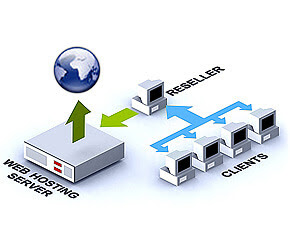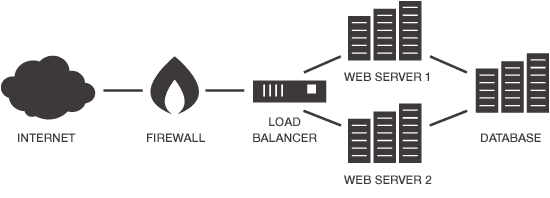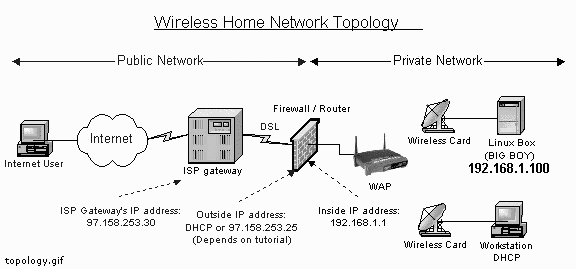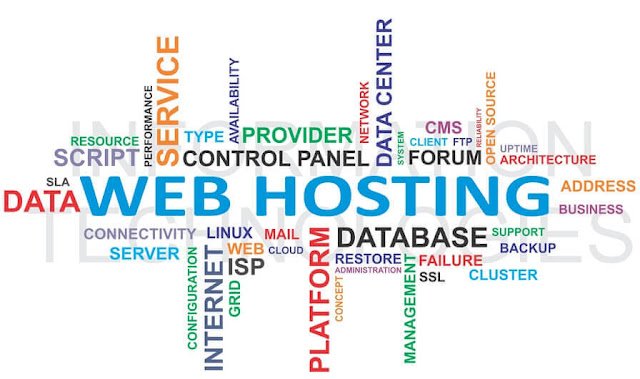
In the previous article,I’ve written about Hosting and General Types of hosting.In this article,as I’ve mentioned here,that there are 17 types of hosting,out of which 4 are in general and are discussed here.
These types of hosting also are based on the site’s requirement,technical knowledge,money the user wants to invest,performance,skill requirement and server control.
1. Free web hosting service
Is offered by different companies with limited services, sometimes supported by advertisements, and often limited when compared to paid hosting.
Free web hosting can be a good choice when you just want to build a non-critical website for fun. Very often in a free hosting environment, connection speed is slow, website can be down frequently, and advertising banners is automatically added to your website.
Some companies require you to purchase your domain name to receive free hosting services from them, while others offer you a free subdomain under them, such as [yourname.webhost.com]. Be careful as you will not be able to transfer these free subdomains.
2. Reseller web hosting:
It allows clients to become web hosts themselves. Resellers could function, for individual domains, under any combination of these listed types of hosting, depending on who they are affiliated with as a reseller. Resellers’ accounts may vary tremendously in size: they may have their own virtual dedicated server to a colocated server.
Many resellers provide a nearly identical service to their provider’s shared hosting plan and provide the technical support themselves.
With Reseller Hosting you can:
- Be your own hosting company — make money hosting and developing websites.
- Create your own hosting plans that are tailored to your business and customers.
- Host and bill your customers under your own brand.
- Sell more plans, and keep the profits.
- Create independent cPanel control panels for each of your customers.
3. Managed hosting service:
In this service,the user gets his or her own Web server but is not allowed full control over it (user is denied root access for Linux/administrator access for Windows); however, they are allowed to manage their data via FTP or other remote management tools.
The user is disallowed full control so that the provider can guarantee quality of service by not allowing the user to modify the server or potentially create configuration problems. The user typically does not own the server. The server is leased to the client.
4. Colocation web hosting service:
It’s similar to the dedicated web hosting service, but the user owns the colo server; the hosting company provides physical space that the server takes up and takes care of the server. This is the most powerful and expensive type of web hosting service. In most cases, the colocation provider may provide little to no support directly for their client’s machine, providing only the electrical, Internet access, and storage facilities for the server.
In most cases for colo, the client would have his own administrator visit the data center on site to do any hardware upgrades or changes. Formerly, many colocation providers would accept any system configuration for hosting, even ones housed in desktop-style minitower cases, but most hosts now require rack mount enclosures and standard system configurations.
5. Clustered hosting:
It’s having multiple servers hosting the same content for better resource utilization. Clustered servers are a perfect solution for high-availability dedicated hosting, or creating a scalable web hosting solution.
A cluster may separate web serving from database hosting capability. (Usually web hosts use clustered hosting for their shared hosting plans, as there are multiple benefits to the mass managing of clients)
6. Grid hosting:
This form of distributed hosting is when a server cluster acts like a grid and is composed of multiple nodes.
7. Home Server
Home server: usually a single machine placed in a private residence can be used to host one or more web sites from a usually consumer-grade broadband connection. These can be purpose-built machines or more commonly old PCs. Some ISPs actively attempt to block home servers by disallowing incoming requests to TCP port 80 of the user’s connection and by refusing to provide static IP addresses.
A common way to attain a reliable DNS host name is by creating an account with a dynamic DNS service. A dynamic DNS service will automatically change the IP address that a URL points to when the IP address changes.
Some specific types of hosting provided by web host service providers and are used for those tasks only.
- File hosting service: hosts files, not web pages
- Image hosting service: hosts images
- Video hosting service:Hosts video
- Blog hosting service:Hosts Blogs
- Paste bin: Used For Storing and Sharing text
- Shopping cart software
- E-mail hosting service
Hence these are the types of hosting.Feel free to drop any questions down in the comments.











Thank you for sharing your thoughts and knowledge on this topic. This is really helpful and informative, as this gave me more insight to create more ideas and solutions for my plan. I would love to see more updates from you.
Web Hosting Services
http://offshorededi.com offers high quality DMCA Ignored Hosting.